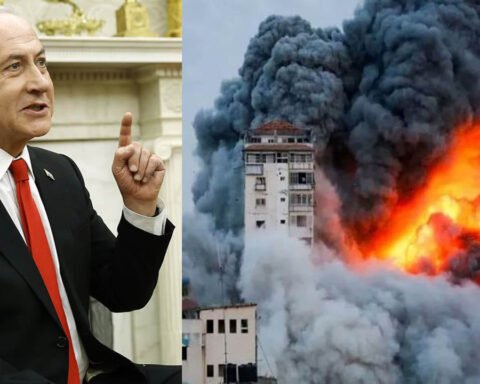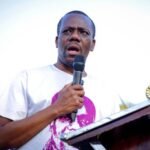The ongoing conflict in the eastern region of the Democratic Republic of Congo (DRC) is driving a troubling trade in the country’s rich mineral resources, with neighboring nations illegally smuggling out vast amounts of gold, coltan, and cobalt.
These precious minerals, essential for global industries such as electronics, are fueling armed groups and exacerbating instability in the region.
Eastern Congo, rich in valuable resources, has long been a battleground for both local militias and foreign-backed armed groups. One of the most prominent groups, M23, has taken control of strategic mining regions, including Rubaya, known for its significant deposits of coltan. The rebel forces, allegedly receiving support from Rwanda, have created a shadow economy where minerals are smuggled across borders and traded illicitly, often with devastating consequences.
According to reports, Rwanda, despite its official stance, has played a significant role in facilitating the flow of conflict minerals from Congo. Gold and coltan, both essential for modern electronics, are frequently smuggled across the border into Rwanda, bypassing international regulations designed to prevent the trade of conflict minerals. This illicit trade not only undermines the DRC’s sovereignty but also contributes to the perpetuation of violence in the region, with armed groups using the proceeds to fund their operations.
The presence of Ugandan troops in the region has added another layer of complexity to the situation. Deployed initially to combat Islamist militants, Ugandan forces have also set up infrastructure in gold-rich areas, enabling them to exert control over the mining operations. This situation has raised concerns about the exploitation of these resources under the cover of military presence, further aggravating the conflict.
The exploitation of Congo’s resources has severe humanitarian consequences. Armed groups impose taxes on local miners and engage in forced labor, perpetuating cycles of violence and poverty. The illegal trade in minerals also exacerbates the ongoing displacement crisis, with millions of Congolese civilians fleeing their homes in search of safety.
Also Read; Russia Unveils Powerful New
Arsenal for Modern Warfare
Despite efforts to regulate the mineral supply chain and trace the origins of minerals, corruption and inefficiencies have allowed these minerals to enter global markets undetected. The International Tin Research Institute, which works to certify conflict-free minerals, has faced criticism for failing to implement effective measures in conflict zones like Congo. This gap in traceability allows electronics companies to inadvertently source minerals linked to human rights abuses and armed conflict.
In response to the crisis, the international community has imposed sanctions on individuals and entities involved in the smuggling and exploitation of Congo’s resources. However, enforcement remains weak, and the demand for minerals continues to fuel the conflict. For real change to occur, there needs to be a concerted effort to dismantle smuggling networks, support the DRC’s government in asserting control over its territory, and ensure that companies adopt responsible sourcing practices.
The situation in eastern Congo highlights the complex relationship between conflict, resources, and global supply chains. As the war rages on, the smuggling of Congo’s wealth not only deepens the crisis within the country but also affects global markets, making it imperative for the international community to take more decisive action.







